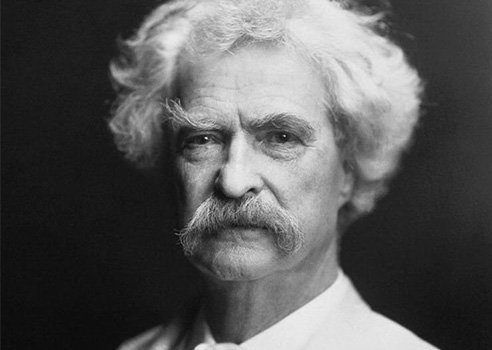Reading time: Less than 3 minutes
Learning to write is really an apprenticeship. Today’s newsletter focuses on writing quotes and advice from some of our best-known masters. Many of the the comments are amusing, some are serious, but all provide ample food for writerly thought.
I was going through some files on my hard drive this week and suddenly remembered that we’re approaching the eighth anniversary of the Sept. 11 attack on the World Trade Centre towers. What jiggled my memory was an email from a subscriber.
Twice a year, I produce a special Power Writing issue in which I indulge my wonky little habit of collecting quotes about writing. Subscriber Per Selling emailed me after the last one — attaching a quote from his favorite Danish journalist Poul Höi.
Höi, who lives in the US and covers American affairs for the Danish paper Berlingske Tidend, was an eye-witness to the 9-11-attack. The quote, which appeared in the paper the day after the attacks, and which Per translated himself goes as follows:
“There are days when words are too small. When your eyes are bigger than your mouth. When the sound of planes over your head, the sight of clouds rising into the sky as a dark cone, and the smell — the smell of fire, of the moment when a fire is the most omnivorous — seems almost too overwhelming to pass on. But words are our tool, and words now must do the job.”
I’ll let those sombre and affecting words launch this current issue of Power Writing: The Quotes edition. And if this inspires you to send me your favourite quotes about writing, I’ll be pleased and will save the best for the next issue.
Just to reassure you, though, the quotes don’t have to be entirely serious! Let’s take Noel Coward, for example. The great playwright and composer once confessed: “I write at high speed because boredom is bad for my health. It upsets my stomach more than anything else.” Then he added: “I also avoid green vegetables. They’re grossly overrated.” (Thanks David Ferman.)
British novelist Martin Amis is a sharp man and you can bet he has some polished thoughts about writing. I wholeheartedly agree with his pithy comment: “All good writing is a war against cliché.”
Reading well is a key part of becoming a good writer and the tome How to Read a Book by Mortimer Adler and Charles Van Doren (yes, the guy involved in the 1950s quiz show scandal and played by Ralph Fiennes in the 1984 movie) captured this clever, backhanded compliment from Samuel Johnson: “One of the amusements of idleness is reading without the fatigue of close attention.”
You can always count on George Orwell to have stern words about writing; here he is as unforgiving as ever: “The English language … becomes ugly and inaccurate because our thoughts are foolish, but the slovenliness of our language makes it easier for us to have foolish thoughts.” (Thanks Jim Beamguard.)
Speaking of stern words, Truman Capote didn’t mince his. “I believe more in the scissors than I do in the pencil,” he wrote. To that I can only add: and don’t forget the delete key! (Thanks Deborah Aker.)
I frequently counsel writers to read their own work out loud as part of self-editing. Fantasy writer Terry Brooks agrees and puts it this way in his book Sometimes the Magic Works: Lessons from a Writing Life, “If you do not hear music in your words, you have put too much thought into your writing and not enough heart.” (Thanks Roger Groce.)
Another bit of technical advice comes from the master Mark Twain. “Don’t say the old lady screamed — bring her on and let her scream. (Thanks Henry Craft.)
And if you ever wonder about why you spend so much time writing, remember the old Chinese proverb that says: “I hear and I forget; I see and I remember; I write and I understand.” (Thanks Dan Lien.)
Finally, let’s wrap up with a perverse thought from German novelist Thomas Mann, who was surely having a bad day when he wrote: “A writer is somebody for whom writing is more difficult than it is for other people.” (Thanks James Hodgins.)


